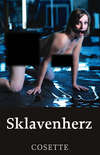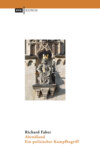Kitabı oku: «Clarissa Harlowe; or the history of a young lady — Volume 9», sayfa 15
LETTER LI
LORD M. TO JOHN BELFORD, ESQ. M. HALL, FRIDAY, SEPT. 29
DEAR SIR,
My kinsman Lovelace is now setting out for London; proposing to see you, and then to go to Dover, and so embark. God send him well out of the kingdom!
On Monday he will be with you, I believe. Pray let me be favoured with an account of all your conversations; for Mr. Mowbray and Mr. Tourville are to be there too; and whether you think he is grown quite his own man again.
What I mostly write for is, to wish you to keep Colonel Morden and him asunder; and so I give you notice of his going to town. I should be very loth there should be any mischief between them, as you gave me notice that the Colonel threatened my nephew. But my kinsman would not bear that; so nobody let him know that he did. But I hope there is no fear; for the Colonel does not, as I hear, threaten now. For his own sake, I am glad of that; for there is not such a man in the world as my kinsman is said to be, at all the weapons—as well he was not; he would not be so daring.
We shall all here miss the wild fellow. To be sure, there is no man better company when he pleases.
Pray, do you never travel thirty or forty miles? I should be glad to see you here at M. Hall. It will be charity when my kinsman is gone; for we suppose you will be his chief correspondent; although he has promised to write to my nieces often. But he is very apt to forget his promises; to us his relations particularly. God preserve us all; Amen! prays
Your very humble servant, M.
LETTER LII
MR. BELFORD, TO LORD M. LONDON, TUESDAY NIGHT, OCT. 3
MY LORD,
I obey your Lordship's commands with great pleasure.
Yesterday in the afternoon Mr. Lovelace made me a visit at my lodgings. As I was in expectation of one from Colonel Morden about the same time, I thought proper to carry him to a tavern which neither of us frequented, (on pretence of a half-appointment;) ordering notice to be sent me thither, if the Colonel came; and Mr. Lovelace sent to Mowbray, and Tourville, and Mr. Doleman of Uxbridge, (who came to town to take leave of him,) to let them know where to find us.
Mr. Lovelace is too well recovered, I was going to say. I never saw him more gay, lively, and handsome. We had a good deal of bluster about some parts of the trust I had engaged in; and upon freedoms I had treated him with; in which, he would have it, that I had exceeded our agreed-upon limits; but on the arrival of our three old companions, and a nephew of Mr. Doleman's, (who had a good while been desirous to pass an hour with Mr. Lovelace,) it blew off for the present.
Mr. Mowbray and Mr. Tourville had also taken some exceptions at the freedoms of my pen; and Mr. Lovelace, after his way, took upon him to reconcile us; and did it at the expense of all three; and with such an infinite run of humour and raillery, that we had nothing to do but to laugh at what he said, and at one another. I can deal tolerably with him at my pen; but in conversation he has no equal. In short, it was his day. He was glad, he said, to find himself alive; and his two friends, clapping and rubbing their hands twenty times in an hour, declared, that now, once more, he was all himself—the charming'st fellow in the world; and they would follow him to the farthest part of the globe.
I threw a bur upon his coat now-and-then; but none would stick.
Your Lordship knows, that there are many things which occasion a roar of applause in conversation, when the heart is open, and men are resolved to be merry, which will neither bear repeating, nor thinking of afterwards. Common things, in the mouth of a man we admire, and whose wit has passed upon us for sterling, become, in a gay hour, uncommon. We watch every turn of such a one's countenance, and are resolved to laugh when he smiles, even before he utters what we are expecting to flow from his lips.
Mr. Doleman and his nephew took leave of us by twelve, Mowbray and Tourville grew very noisy by one, and were carried off by two. Wine never moves Mr. Lovelace, notwithstanding a vivacity which generally helps on over-gay spirits. As to myself, the little part I had taken in the gaiety kept me unconcerned.
The clock struck three before I could get him into any serious or attentive way—so natural to him is gaiety of heart; and such strong hold had the liveliness of the evening taken of him. His conversation, you know, my Lord, when his heart is free, runs off to the bottom without any dregs.
But after that hour, and when we thought of parting, he became a little more serious: and then he told me his designs, and gave me a plan of his intended tour; wishing heartily that I could have accompanied him.
We parted about four; he not a little dissatisfied with me; for we had some talk about subjects, which, he said, he loved not to think of; to whit, Miss Harlowe's will; my executorship; papers I had in confidence communicated to that admirable lady (with no unfriendly design, I assure your Lordship;) and he insisting upon, and I refusing, the return of the letters he had written to me, from the time that he had made his first addresses to her.
He would see me once again, he said; and it would be upon very ill terms if I complied not with his request. Which I bid him not expect. But, that I might not deny him every thing, I told him, that I would give him a copy of the will; though I was sure, I said, when he read it, he would wish he had never seen it.
I had a message from him about eleven this morning, desiring me to name a place at which to dine with him, and Mowbray, and Tourville, for the last time: and soon after another from Colonel Morden, inviting me to pass the evening with him at the Bedford-head in Covent-Garden. And, that I might keep them at distance from one another, I appointed Mr. Lovelace at the Eagle in Suffolk-street.
There I met him, and the two others. We began where we left off at our last parting; and were very high with each other. But, at last, all was made up, and he offered to forget and forgive every thing, on condition that I would correspond with him while abroad, and continue the series which had been broken through by his illness; and particularly give him, as I had offered, a copy of the lady's last will.
I promised him: and he then fell to rallying me on my gravity, and on my reformation-schemes, as he called them. As we walked about the room, expecting dinner to be brought in, he laid his hand upon my shoulder; then pushed me from him with a curse; walking round me, and surveying me from head to foot; then calling for the observations of the others, he turned round upon his heel, and with one of his peculiar wild airs, 'Ha, ha, ha, ha,' burst he out, 'that these sour-faced proselytes should take it into their heads that they cannot be pious, without forfeiting both their good-nature and good-manners!—Why, Jack,' turning me about, 'pr'ythee look up, man!—Dost thou not know, that religion, if it has taken proper hold of the heart, is the most cheerful countenance-maker in the world?—I have heard my beloved Miss Harlowe say so: and she knew, or nobody did. And was not her aspect a benign proof of the observation? But thy these wamblings in thy cursed gizzard, and thy awkward grimaces, I see thou'rt but a novice in it yet!—Ah, Belford, Belford, thou hast a confounded parcel of briers and thorns to trample over barefoot, before religion will illuminate these gloomy features!'
I give your Lordship this account, in answer to your desire to know, if I think him the man he was.
In our conversation at dinner, he was balancing whether he should set out the next morning, or the morning after. But finding he had nothing to do, and Col. Morden being in town, (which, however, I told him not of,) I turned the scale; and he agreed upon setting out to-morrow morning; they to see him embark; and I promised to accompany them for a morning's ride (as they proposed their horses); but said, that I must return in the afternoon.
With much reluctance they let me go to my evening's appointment: they little thought with whom: for Mr. Lovelace had put it as a case of honour to all of us, whether, as he had been told that Mr. Morden and Mr. James Harlowe had thrown out menaces against him, he ought to leave the kingdom till he had thrown himself in their way.
Mowbray gave his opinion, that he ought to leave it like a man of honour as he was; and if he did not take those gentlemen to task for their opprobrious speeches, that at least he should be seen by them in public before he went away; else they might give themselves airs, as if he had left the kingdom in fear of them.
To this he himself so much inclined, that it was with difficulty I persuaded him, that, as they had neither of them proceeded to a direct and formal challenge; as they knew he had not made himself difficult of access; and as he had already done the family injury enough; and it was Miss Harlowe's earnest desire, that he would be content with that; he had no reason, from any point of honour, to delay his journey; especially as he had so just a motive for his going, as the establishing of his health; and as he might return the sooner, if he saw occasion for it.
I found the Colonel in a very solemn way. We had a good deal of discourse upon the subject of certain letters which had passed between us in relation to Miss Harlowe's will, and to her family. He has some accounts to settle with his banker; which, he says, will be adjusted to-morrow; and on Thursday he proposes to go down again, to take leave of his friends; and then intends to set out directly for Italy.
I wish Mr. Lovelace could have been prevailed upon to take any other tour, than that of France and Italy. I did propose Madrid to him; but he laughed at me, and told me, that the proposal was in character from a mule; and from one who was become as grave as a Spaniard of the old cut, at ninety.
I expressed to the Colonel my apprehensions, that his cousin's dying injunctions would not have the force upon him that were to be wished.
'They have great force upon me, Mr. Belford,' said he; 'or one world would not have held Mr. Lovelace and me thus long. But my intention is to go to Florence; and not to lay my bones there, as upon my cousin's death I told you I thought to do; but to settle all my affairs in those parts, and then to come over, and reside upon a little paternal estate in Kent, which is strangely gone to ruin in my absence. Indeed, were I to meet Mr. Lovelace, either here or abroad, I might not be answerable for the consequence.'
He would have engaged me for to-morrow. But having promised to attend Mr. Lovelace on his journey, as I have mentioned, I said, I was obliged to go out of town, and was uncertain as to the time of my return in the evening. And so I am to see him on Thursday morning at my own lodgings.
I will do myself the honour to write again to your Lordship to-morrow night. Mean time, I am, my Lord,
Your Lordship's, &c.
LETTER LIII
MR. BELFORD, TO LORD M. WEDN. NIGHT, OCT. 4
MY LORD,
I am just returned from attending Mr. Lovelace as far as Gad's-Hill, near Rochester. He was exceeding gay all the way. Mowbray and Tourville are gone on with him. They will see him embark, and under sail; and promise to follow him in a month or two; for they say, there is no living without him, now he is once more himself.
He and I parted with great and even solemn tokens of affection; but yet not without gay intermixtures, as I will acquaint your Lordship.
Taking me aside, and clasping his arms about me, 'Adieu, dear Belford!' said he: 'may you proceed in the course you have entered upon!—Whatever airs I give myself, this charming creature has fast hold of me here— [clapping his hand upon his heart]: and I must either appear what you see me, or be what I so lately was—O the divine creature!' lifting up his eyes——
'But if I live to come to England, and you remain fixed in your present way, and can give me encouragement, I hope rather to follow your example, than to ridicule you for it. This will [for I had given him a copy of it] I will make the companion of my solitary hours. You have told me a part of its melancholy contents; and that, and her posthumous letter, shall be my study; and they will prepare me for being your disciple, if you hold on.
'You, Jack, may marry,' continued he; 'and I have a wife in my eye for you.—Only thou'rt such an awkward mortal:' [he saw me affected, and thought to make me smile:] 'but we don't make ourselves, except it be worse by our dress. Thou art in mourning now, as well as I: but if ever thy ridiculous turn lead thee again to be beau-brocade, I will bedizen thee, as the girls say, on my return, to my own fancy, and according to thy own natural appearance——Thou shalt doctor my soul, and I will doctor thy body: thou shalt see what a clever fellow I will make of thee.
'As for me, I never will, I never can, marry—that I will not take a few liberties, and that I will not try to start some of my former game, I won't promise—habits are not so easily shaken off—but they shall be by way of wearing. So return and reform shall go together.
'And now, thou sorrowful monkey, what aileth thee?' I do love him, my Lord.
'Adieu!—And once more adieu!'—embracing me. 'And when thou thinkest thou hast made thyself an interest out yonder (looking up) then put in a word for thy Lovelace.'
Joining company, he recommended to me to write often; and promised to let me hear quickly from him; and that he would write to your Lordship, and to all his family round; for he said, that you had all been more kind to him than he had deserved.
And so we parted.
I hope, my Lord, for all your noble family's sake, that we shall see him soon return, and reform, as he promises.
I return your Lordship my humble thanks for the honour of your invitation to M. Hall. The first letter I receive from Mr. Lovelace shall give me the opportunity of embracing it. I am, my Lord,
Your most faithful and obedient servant, J. BELFORD.
LETTER LIV
MR. BELFORD, TO LORD M. THURSDAY MORNING, OCT. 5
It may be some satisfaction to your Lordship, to have a brief account of what has just now passed between Colonel Morden and me.
We had a good deal of discourse about the Harlowe family, and those parts of the lady's will which still remain unexecuted; after which the Colonel addressed himself to me in a manner which gave me some surprise.
He flattered himself, he said, from my present happy turn, and from my good constitution, that I should live a great many years. It was therefore his request, that I would consent to be his executor; since it was impossible for him to make a better choice, or pursue a better example, than his cousin had set.
His heart, he said was in it: there were some things in his cousin's will and his analogous: and he had named one person to me, with whom he was sure I would not refuse to be joined: and to whom he intended to apply for his consent, when he had obtained mine.32 [Intimating, as far as I could gather, that it was Mr. Hickman, son of Sir Charles Hickman; to whom I know your Lordship is not a stranger: for he said, Every one who was dear to his beloved cousin, must be so to him: and he knew that the gentleman who he had thoughts of, would have, besides my advice and assistance, the advice of one of the most sensible ladies in England.]
He took my hand, seeing me under some surprise: you must not hesitate, much less deny me, Mr. Belford. Indeed you must not. Two things I will assure you of: that I have, as I hope, made every thing so clear that you cannot have any litigation: and that I have done so justly, and I hope it will be thought so generously, by all my relations, that a mind like your's will rather have pleasure than pain in the execution of this trust. And this is what I think every honest man, who hopes to find an honest man for his executor, should do.
I told him, that I was greatly obliged to him for his good opinion of me: that it was so much every man's duty to be an honest man, that it could not be interpreted as vanity to say, that I had no doubt to be found so. But if I accepted of this trust, it must be on condition—
I could name no condition, he said, interrupting me, which he would refuse to comply with.
This condition, I told him, was, that as there was as great a probability of his being my survivor, as I his, he would permit me to name him for mine; and, in that case, a week should not pass before I made my will.
With all his heart, he said; and the readier, as he had no apprehensions of suddenly dying; for what he had done and requested was really the effect of the satisfaction he had taken in the part I had already acted as his cousin's executor; and in my ability, he was pleased to add: as well as in pursuance of his cousin's advice in the preamble of her will; to wit; 'That this was a work which should be set about in full health, both of body and mind.'
I told him, that I was pleased to hear him say that he was not in any apprehension of suddenly dying; as this gave me assurance that he had laid aside all thoughts of acting contrary to the dying request of his beloved cousin.
Does it argue, said he, smiling, that if I were to pursue a vengeance so justifiable in my own opinion, I must be in apprehension of falling by Mr. Lovelace's hand?—I will assure you, that I have no fears of that sort—but I know this is an ungrateful subject to you. Mr. Lovelace is your friend; and I will allow, that a good man may have a friendship for a bad one, so far as to wish him well, without countenancing him in his evil.
I will assure you, added he, that I have not yet made any resolutions either way. I have told you what force my cousin's repeated requests have with me. Hitherto they have with-held me—But let us quit this subject.
This, Sir [giving me a sealed-up parcel] is my will. It is witnessed. I made no doubt of prevailing upon you to do me the requested favour. I have a duplicate to leave with the other gentleman; and an attested copy, which I shall deposit at my banker's. At my return, which will be in six or eight months at farthest, I will allow you to make an exchange of your's, if you will have it so. I have only now to take leave of my relations in the country. And so God protect you, Mr. Belford! You will soon hear of me again.
He then very solemnly embraced me, as I did him: and we parted.
I heartily congratulate your Lordship on the narrow escape each gentleman has had from the other: for I apprehend that they could not have met without fatal consequences.
Time, I hope, which subdues all things, will subdue their resentments. I am, my Lord,
Your Lordship's most faithful and obedient servant, J. BELFORD.
Several other letters passed between Miss Howe and Mr. Belford, relating to the disposition of the papers and letters; to the poor's fund; and to other articles of the Lady's will: wherein the method of proceeding in each case was adjusted. After which the papers were returned to Mr. Belford, that he might order the two directed copies of them to be taken.
In one of these letters Mr. Belford requests Miss Howe to give the character of the friend she so dearly loved: 'A task, he imagines, that will be as agreeable to herself, as worthy of her pen.' 'I am more especially curious to know,' says he, 'what was that particular disposition of her time, which I find mentioned in a letter which I have just dipt into, where her sister is enviously reproaching her on that score.33 This information may enable me,' says he, 'to account for what has often surprised me: how, at so tender an age, this admirable lady became mistress of such extraordinary and such various qualifications.'
What is between crotchets, thus [ ], Mr. Belford omitted in the transcription of this Letter to Miss Howe.
[Закрыть]
See Vol. I. Letter XLII.
[Закрыть]










